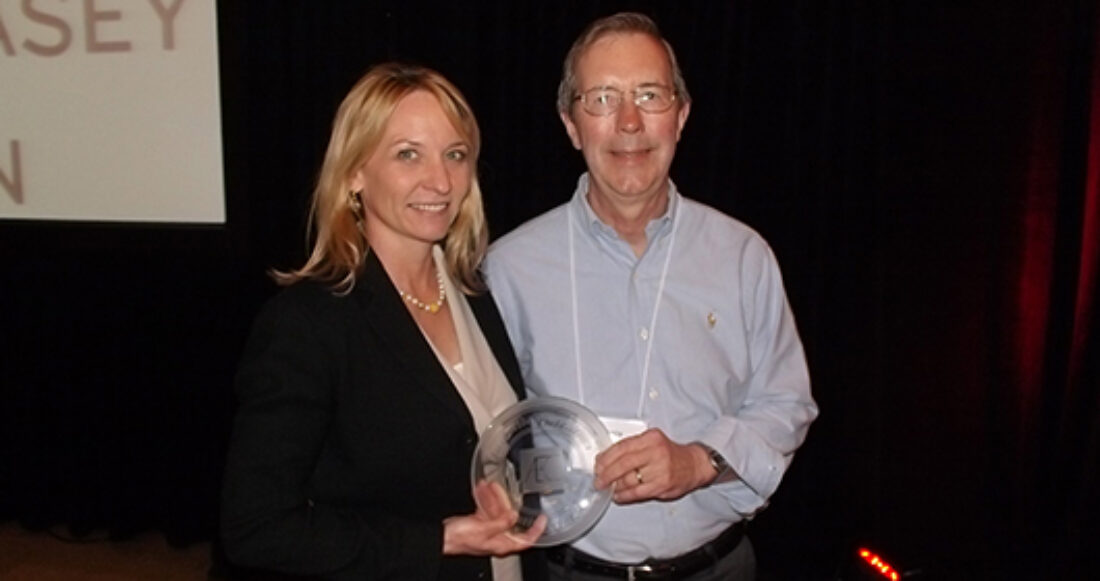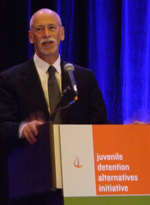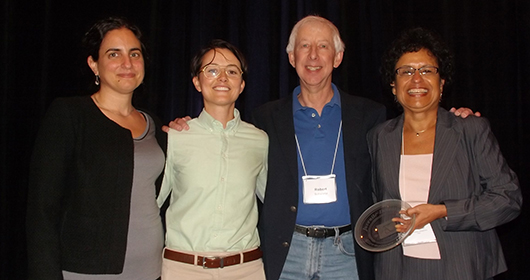Juvenile Detention Reformers Gather in Atlanta, GA

Delegations from more than 180 sites in 39 states and the District of Columbia convened in Atlanta, Georgia, on April 16, 2013 for the Annual JDAI Inter-site Conference. This two-day event was attended by more than 800 juvenile justice professionals from Juvenile Detention Alternatives Initiative sites across the country.
 Participants were welcomed by the Honorable Carol Hunstein, chief justice of the Georgia Supreme Court and Patrick McCarthy, president & CEO of the Annie E. Casey Foundation. Chief Justice Hunstein credited state and local Georgia officials for the significant decreases in youth confinement across the state, especially in Clayton County, and the sweeping legislative reform of the juvenile justice code. McCarthy, citing the recent Supreme Court rulings on the treatment of juveniles, credited the work of JDAI sites, stating that “your collective leadership reclaimed juvenile justice for what it was meant to be – a different approach for children than for adults.” View the conference opening speakers.
Participants were welcomed by the Honorable Carol Hunstein, chief justice of the Georgia Supreme Court and Patrick McCarthy, president & CEO of the Annie E. Casey Foundation. Chief Justice Hunstein credited state and local Georgia officials for the significant decreases in youth confinement across the state, especially in Clayton County, and the sweeping legislative reform of the juvenile justice code. McCarthy, citing the recent Supreme Court rulings on the treatment of juveniles, credited the work of JDAI sites, stating that “your collective leadership reclaimed juvenile justice for what it was meant to be – a different approach for children than for adults.” View the conference opening speakers.
In his state-of-the-initiative speech, Bart Lubow, director of the Juvenile Justice Strategy Group at the Annie E. Casey Foundation, raised up the results and challenges of JDAI’s past two decades, and optimistically reported that we may have reached a turning point in the era of “mass incarceration.” While it is too early to claim success, it has been a good year for juvenile justice with many signs of progress: the Supreme Court’s affirmation that children must be treated differently from adults; legislation in Georgia and New York reforming juvenile justice; Robert Listenbee’s appointment as the new OJJDP administrator; operational level changes in Connecticut; and continued reductions in the use of secure confinement in JDAI sites (outpacing the reductions in non-JDAI sites) without a resultant increase in youth crime. Challenges remain, however, including reducing disparities in treatment and outcomes for youth of color in confinement, increasing meaningful family engagement in juvenile justice policy and practice, and tackling the use of detention for technical and low-level violations of probation. View the state-of-the-initiative speech.
A plenary panel shared recent developments in Georgia. Panelists — Hon. Michael Boggs, judge, Georgia Court of Appeals; Adolphus Graves, chief probation officer, Fulton County Juvenile Court; Hon. Carol Hunstein, chief justice, Supreme Court of Georgia; Jason Newman, manager of state policy, Pew Center on the States; Hon. Steven Teske, chief judge, Clayton County Juvenile Court; Rep. Wendell Willard, chair, Judiciary Committee, Georgia House of Representatives; and W. Thomas Worthy, deputy executive counsel, Office of Governor Nathan Deal — explained both the process and the support for sweeping legislative reforms of juvenile law. The panel cited several contributors to the successful passage of new juvenile law: gubernatorial, legislative and judicial leadership; earlier legislative reform of the adult criminal justice system; a partnership with Pew Charitable Trust; and, early detention reform successes in Clayton County. Historically, Georgia spent $91,000 a year on confining a youth and had a 50% recidivism rate. They would like to improve that by implementing dispositional reforms. Read a summary of HB242 and view the recorded plenary, Spotlight on Success: Report from Georgia.

As in the past, this year’s conference offered a diverse mix of faculty, policy discussions, practice innovations, decision-making tools and new publications. Workshop topics included the school-to-prison pipeline, family engagement, results-based leadership, strategies to reduce commitments and placements, risk assessment tools, judicial advocacy, including victim advocates in detention reform, PREA, engaging the community and law enforcement, embedding JDAI in state law and regulation, and JDAI in Indian Country, to name a few.
For many, the highlight of the conference was the keynote from Jerry Tello, the director of the National Latino Fatherhood and Family Institute in Los Angeles, who passionately shared his vision for the development of a healing-informed model of service delivery, and touched a raw cord of emotion as he described the challenges faced by young men of color.
The conference concluded by acknowledging the outstanding contributions to detention reform by a community member and a nonprofit organization. Dennis Morrow (pictured above with Stephanie Vetter) was presented the Natalie Bimel award for his outstanding contributions to Multnomah County’s detention reform work and for serving disadvantaged kids for more than 30 years through Janus Youth Programs. The Gloria B. Jenkins Award was presented to the Juvenile Law Center for its role in exposing the Luzerne County, PA, “kids-for-cash” scandal and for its advocacy contributing to several landmark United States Supreme Court rulings.





